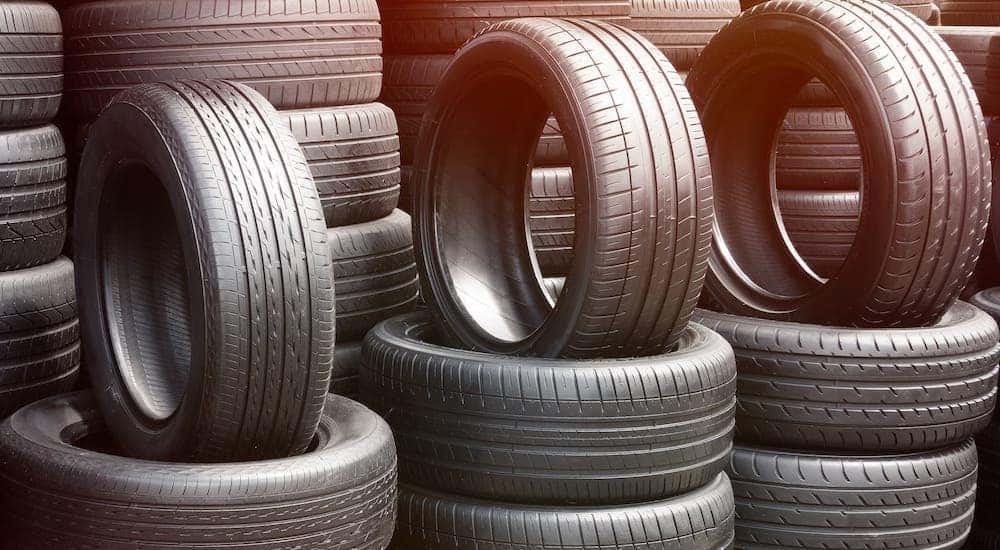Morris Tire Service Quality: Where Know-how Fulfills Your Tire Requirements
Morris Tire Service Quality: Where Know-how Fulfills Your Tire Requirements
Blog Article
The Environmental Advantages of Proper Tire Maintenance
Maintaining correct tire treatment is usually overlooked, yet its influence on the environment is extensive. From decreasing fuel intake to lowering discharges output, the benefits are far-ranging. Appropriate tire upkeep not only expands the lifespan of tires yet likewise reduces garbage dump waste and adds to boosted air top quality. The interconnectedness of these benefits highlights the critical role that straightforward upkeep practices can play in advertising environmental sustainability.
Lowered Gas Usage
Improving tire upkeep methods can lead to a significant reduction in gas intake for vehicles. According to the United State Division of Power, underinflated tires can reduce gas mileage by 0.2% for every 1 psi decline in pressure in all four tires.
Along with tire pressure, normal tire rotations and alignments also play an essential function in gas efficiency. Unevenly worn tires can increase fuel usage as the engine works harder to maintain speed and grip. By maintaining proper positioning and turning tires at suggested periods, vehicle drivers can ensure also use and prolong the life of their tires, inevitably saving fuel and decreasing their carbon footprint.
Extended Tire Lifespan
Expanding the life expectancy of tires is a key facet of reliable car maintenance methods that can generate cost financial savings and ecological advantages in the future. By appropriately preserving tires, chauffeurs can considerably prolong their use, minimizing the frequency at which brand-new tires need to be manufactured and old ones dealt with. This not just saves important sources however additionally lessens the energy and exhausts associated with tire manufacturing and disposal processes.
Regularly examining tire stress, rotating tires, and making sure proper placement are important actions in prolonging tire life-span. Sufficient step depth is vital for optimum traction and security, but it additionally plays a duty in how much time tires can be used prior to requiring replacement. Furthermore, avoiding aggressive driving actions that speed up tire wear, such as rough braking and sharp turns, can better enhance tire durability.
Inevitably, increasing the durability of tires via proactive maintenance not just profits the environment by decreasing waste and conserving sources but additionally leads to cost financial savings for vehicle owners by postponing the demand for new tire purchases.
Lower Discharges Result
Efficient tire maintenance methods add to a decrease in exhausts result, aligning with environmental sustainability goals in the automotive market. Properly inflated tires, frequently revolved and straightened, can boost gas performance, hence lowering the overall carbon dioxide discharges from automobiles. When tires are underinflated, the engine has to function tougher to propel the lorry, leading to enhanced gas consumption and greater exhausts. By preserving ideal tire stress levels, chauffeurs can help reduce these negative ecological influences.
In addition, properly maintained tires likewise improve traction and lower rolling resistance, better boosting fuel efficiency. This, subsequently, minimizes the amount of exhaust gases released right into the ambience. Additionally, guaranteeing tires are properly blown up and lined up can extend the life-span of the tires, lowering the frequency of tire substitutes and the linked environmental costs of tire manufacturing and disposal.

Reduced Landfill Waste
Offered the positive impact of proper tire maintenance on that site lowering emissions result, one more considerable environmental benefit is the capacity for reduced land fill waste. They put on out faster and require to be changed more regularly when tires are not preserved appropriately. This brings about a higher volume of made use of tires being taken care of in land fills. By making sure that tires are properly inflated, aligned, balanced, and turned consistently, their life-span can be significantly extended. This implies that fewer tires finish up in garbage dumps, reducing the quantity of non-biodegradable waste in these already overruning sites.

Improved Air High Quality
Enhancing air top quality with correct tire maintenance methods is an essential facet of sustainable ecological stewardship. When tires are underinflated, they create more moving resistance, resulting in raised fuel usage and greater emissions of hazardous toxins such as carbon monoxide and nitrogen oxides. Properly inflated tires not just improve gas effectiveness but likewise minimize the quantity of toxins launched right into the air.
Moreover, well-kept tires with correct tread depth and positioning add to safer driving conditions, reducing the probability of crashes that can result in the release of additional pollutants into the environment. By expanding the life-span of tires via regular maintenance and turning, less tires are thrown out too soon, lowering the ecological impact of tire disposal and manufacturing processes.
Conclusion
In conclusion, correct tire upkeep provides various environmental advantages. It is crucial for people to prioritize tire upkeep as a basic yet efficient means to shield the atmosphere for future generations.
Proper tire upkeep not only expands the life expectancy of tires but likewise decreases land fill waste and contributes to boosted air high quality - tire shop near me. By preserving proper positioning and rotating home tires at suggested intervals, motorists can ensure also prolong the life and use of their tires, ultimately saving gas and lowering their carbon footprint
By properly preserving tires, vehicle drivers can substantially prolong their functionality, lowering the frequency at which brand-new tires require to be manufactured and old ones disposed of.Regularly inspecting tire stress, rotating tires, and making sure correct positioning are crucial steps in prolonging tire life-span. Additionally, guaranteeing tires are appropriately blown up and aligned can prolong the life-span of the tires, reducing the frequency of tire replacements and the associated ecological costs of tire manufacturing and disposal.
Report this page